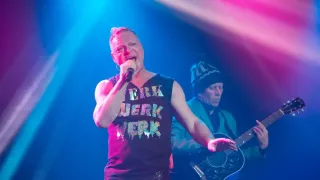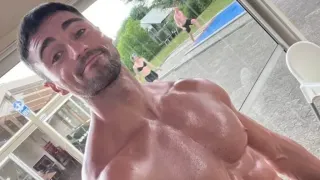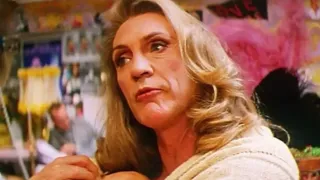September 20, 2015
Oakland Pride Revives Talk of LGBT Center
Matthew S. Bajko READ TIME: 3 MIN.
Five years ago when organizers relaunched Oakland's Pride festival, their ultimate goal was to use the LGBT event to raise money for opening an LGBT community center in the East Bay city.
According to its mission statement, Oakland Pride "is committed to facilitating leadership and coalition building for the funding and development of the first LGBTQ community center in Oakland for everyone."
But that objective has been hindered by the Pride committee's fiscal realities. As the Bay Area Reporter noted in a story last week, this year marked the first time that the volunteer-run nonprofit group that puts on Pride is not running a deficit.
Organizers raised a record $150,000 in sponsorships for the 2015 event, due to the participation of Oakland-based companies such as Kaiser Permanente and Pandora. The total is $70,000 more than what the Pride board netted in past years and allowed it to retire the $40,000 in debt it was carrying from the 2014 event.
"In the beginning an optimistic goal they had was we can use this festival to raise funds for a center," said Pride board Co-Chair Carlos Uribe. "The reality is the festival has been either cost neutral or, some years, it's put us into debt, which is unfortunately a pretty common thing with most LGBT festivals across the country, as we are coming to learn."
With it now on firm financial footing for the first time, the Pride committee is beginning to seriously consider if an LGBT community center in Oakland can become a reality. Later this month Uribe, a local political consultant, is flying to New York to meet with leaders of the Ali Forney Center, which provides housing to homeless LGBT teens and other services through its drop-in center, as part of a fact-finding trip.
"It is an amazing model of how an LGBT center is run," said Uribe.
Oakland Pride officials have had initial conversations with funders of LGBT centers, such as the Horizons Foundation in San Francisco, said Uribe, to assess what sort of financial assistance is available. They are also aiming to elicit feedback directly from the community about what they would like to see offered at an Oakland LGBT community center.
"One thing we want to do post Pride and early next year is to start to reach out and have roundtables and community meetings with shareholders in the community to really learn about what we need from a center," said Uribe. "If we know nothing about Oakland, the cookie-cutter model doesn't work here."
There are already several LGBT community centers operating in the East Bay. The Pacific Center for Human Growth, which opened in Berkeley in 1973, serves LGBT residents of northern Alameda County.
Five years ago the Pacific Center had looked at relocating to Oakland when its building was put up for sale. But it was able to remain after the property owner pulled it off the market.
In Contra Costa County, the Rainbow Community Center in Concord has been operating since 1992. It began as an offshoot of the Pacific Center and became its own nonprofit in 1996.
A third LGBT center, the Lighthouse Community Center in Hayward, shuttered last year due to a lack of support. LGBT centers in San Jose and San Francisco, which have both struggled at times with their finances, continue to operate.
The idea for an LGBT community center in Oakland first gained momentum in 2009 when then newly sworn-in lesbian City Councilwoman Rebecca Kaplan, who holds the at-large seat, revived an LGBT Roundtable after she took office.
The committee of LGBT community leaders identified opening an LGBT center as one priority. Back then Kaplan, whose office met with leaders of Chicago's LGBT center, said she could see a community center opened by the end of her first term in 2012.
While the idea remains a concept in name only, the need for such a space, if anything, has only grown since it was first floated as the city has seen an influx of LGBT residents priced out of San Francisco and other areas.
"What sort of safe spaces do we need for queer folk to come together, I think, are the conversations we are having," said freshman Oakland District 2 City Councilman Abel Guillen, who identifies as Two Spirit.
How to pay for an LGBT center in Oakland and ensure such a facility could remain fiscally solvent continues to present a quandary for supporters. For now, establishing a center remains a "longer-term goal" for the Pride committee.
As it states on its website, "Oakland Pride wants to be of assistance in providing a sustainable solution to implement or support needed services for challenges in our community - especially in low-income, multi-cultural elder and young LGBT communities."






